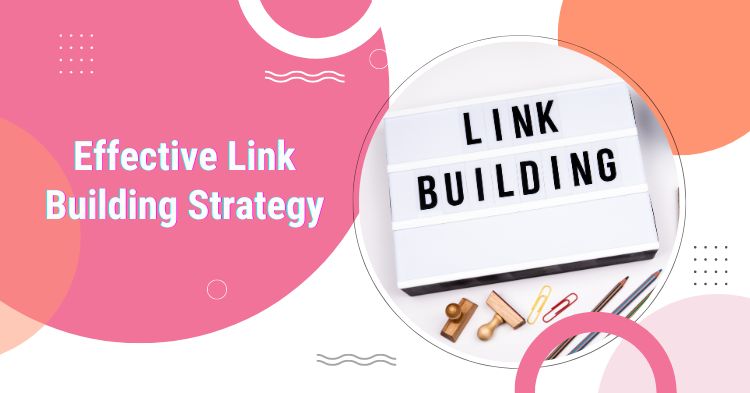Developing an effective link building strategy is essential for enhancing your SEO efforts and establishing a robust online presence. The most efficient approach involves creating high-value content that naturally attracts backlinks.
When formulating your digital marketing strategy, it’s important to set clear and SMART objectives: Specific, Measurable, Achievable, Relevant, and Time-Bound. For instance, if your goal is to improve your site’s search engine ranking, focus on securing high-quality backlinks.
Engaging in guest blogging is another effective tactic for obtaining backlinks. By contributing insightful articles to industry-relevant sites, you gain visibility and establish yourself as an authority in your field.
Foundations of Link Building
Backlinks play a critical role in enhancing your website’s domain authority and improving your positioning on search engine results pages (SERPs). Understanding the types of backlinks and their significance can significantly boost your effective link building strategy.
Backlinks and Their Importance
Backlinks are links from one website to another. They are crucial for search engine optimization (SEO) as they signal to search engines that your content is valuable and trustworthy. High-quality backlinks from authoritative websites can enhance your site’s domain authority and improve rankings on SERPs.
Gaining high-authority backlinks through outsourced services or link-building agencies can be a more effective link building strategy for identifying valuable linking opportunities, ensuring your links come from reputable sources.
Link-building agencies also generally have experience with leveraging channels such as broken link building, something that in-house teams generally struggle with.
Differentiating Between Dofollow and Nofollow Links
Dofollow and nofollow links play distinct roles in link-building strategies. Dofollow links pass on “link juice,” or SEO value, which directly helps in improving your website’s domain authority and search engine rankings.
Prioritizing do-follow links from high-authority websites is essential for building a strong backlink profile.
Nofollow links, on the other hand, do not pass on SEO value. They instruct search engines not to follow the link, which typically means they don’t influence search rankings directly.
However, nofollow links still hold value by driving traffic and increasing brand visibility. Balancing both types of links can lead to a more natural and effective link building strategy.
Developing an Effective Link Building Strategy
Creating an effective link building strategy involves identifying valuable websites, crafting effective outreach messages, and analyzing the quality of your backlinks. These steps will enhance your backlink profile and improve long-term marketing success.
#1 Identifying and Prioritizing Target Websites
To begin, identify websites that align with your niche and have strong domain authority. Tools like Ahrefs and Semrush can help you find sites with high relevance and authority within your industry.
Prioritize websites that already have good engagement and are likely to respond to outreach. Focus on relevant websites that can provide quality links to increase your backlink profile. Aim for websites with high traffic and strong SEO metrics to maximize impact.
#2 Crafting Personalized Outreach Messages
Personalized outreach is essential for gaining high-quality backlinks. Tailor your messages to each website by referencing specific articles or content you found valuable. Mention how your proposed link adds value to their audience.
Be clear and concise in your communication. Provide examples of your expertise and explain why a collaboration would be mutually beneficial. Remember, personalized messages have a higher success rate than generic templates.
#3 Measuring and Analyzing Backlink Quality
After establishing backlinks, it’s crucial to measure and analyze their quality. Use tools like Ahrefs and Semrush to check metrics like domain authority, page authority, and spam score of your acquired links.
Track the performance and ensure they drive traffic and improve your search rankings. Analyze the links regularly to maintain a healthy backlink profile. Remove or disavow low-quality links that may harm your SEO efforts.
By focusing on these elements, you can develop an effective link building strategy that supports your long-term marketing goals.
Content Creation for Effective Link Building
Content marketing involves creating link-worthy content that attracts backlinks naturally. Focus on producing materials that provide real value to your audience. Well-researched articles, comprehensive guides, and detailed case studies can position your site as an authority.
Lists and how-to guides are particularly effective. They break down complex topics into easily digestible pieces of information. Sharing expert opinions and original research can also make your content more attractive for backlinks.
You should also consider guest posting —by contributing valuable content to other reputable sites in your industry, you can earn quality backlinks and reach new audiences. Don’t forget to promote your content through social media and email campaigns to increase its visibility and link potential.
Outreach and Relationship Building
Effectively reaching out and building relationships is crucial for gaining valuable backlinks. It’s essential to engage in guest blogging, collaborate with influencers, and use secure communication and reporting tools.
Guest Blogging and Collaboration Opportunities
By contributing high-quality content to relevant websites, you can gain exposure to new audiences, establish yourself as an authority, and earn valuable backlinks. Look for websites that align with your niche and have engaged audiences.
Personalize your outreach emails to the website owners, mentioning specific articles you enjoyed and suggesting topics that would benefit their readers.
Collaboration opportunities, such as co-hosting webinars or creating joint content pieces, can also be effective. Partnering with others in your industry allows for mutual promotion and expands your reach. Always ensure that collaborative content is valuable to both parties’ audiences.
Secure Communication Channels and Reporting
Utilizing secure communication channels is vital for maintaining trust and efficiency in your outreach campaigns. Tools like email encryption and private messaging apps can help keep your correspondence safe. For highly sensitive or technical communication, consider using VPS hosting for secure data handling and storage.
Effective reporting is equally important. Keep track of your outreach campaigns using campaign management tools or spreadsheets. Regularly update your outreach progress, including responses, follow-ups, and successful link placements. Detailed reports help in evaluating the success of your strategies and refining future outreach efforts.
Establishing Relationships with Influencers and Bloggers
Connecting with influencers and bloggers in your niche can significantly boost your link-building efforts. Start by identifying key influencers through social media and industry events. Engage with their content by commenting and sharing, which helps in establishing an initial connection.
When reaching out for collaboration or guest post opportunities, highlight how your content aligns with their interests and provides value to their audience. Building genuine relationships takes time, so be patient.
FAQs
Q1. What Is the Link Building?
Link building is the process of acquiring hyperlinks from other websites to your own. These links, known as backlinks, are important for search engine optimization (SEO) because they signal to search engines that your site has valuable and credible content.
Q2. Is Link Building Good for SEO?
Yes, link building is beneficial for SEO. It is a critical component of a successful SEO strategy because high-quality backlinks from reputable websites help improve your site’s domain authority and search engine rankings.
Backlinks are considered a vote of confidence from other websites, indicating that your content is trustworthy and valuable. Effective link building can lead to higher organic traffic and better positioning on SERPs.
Conclusion
Consistency is key. Steady efforts over time yield better results than quick, short-term tactics. Patience and persistence pay off in long-term SEO success.
Regularly update your link building strategy to adapt to changing SEO trends and algorithms. This ensures sustained growth and relevance in search engine rankings. Consider utilizing tools like Google Analytics to track your performance. These insights help refine and improve your approach over time.
By integrating these best practices into your link-building efforts, you can create a robust and efficient long-term marketing strategy. Prioritize ethical link-building methods to maintain credibility and authority in your field.








